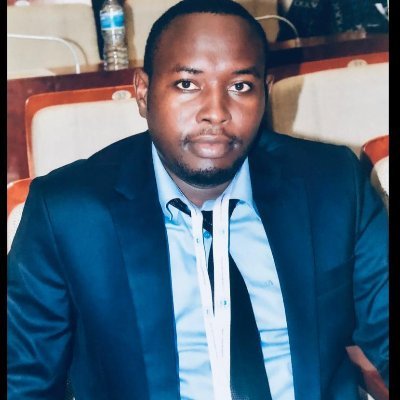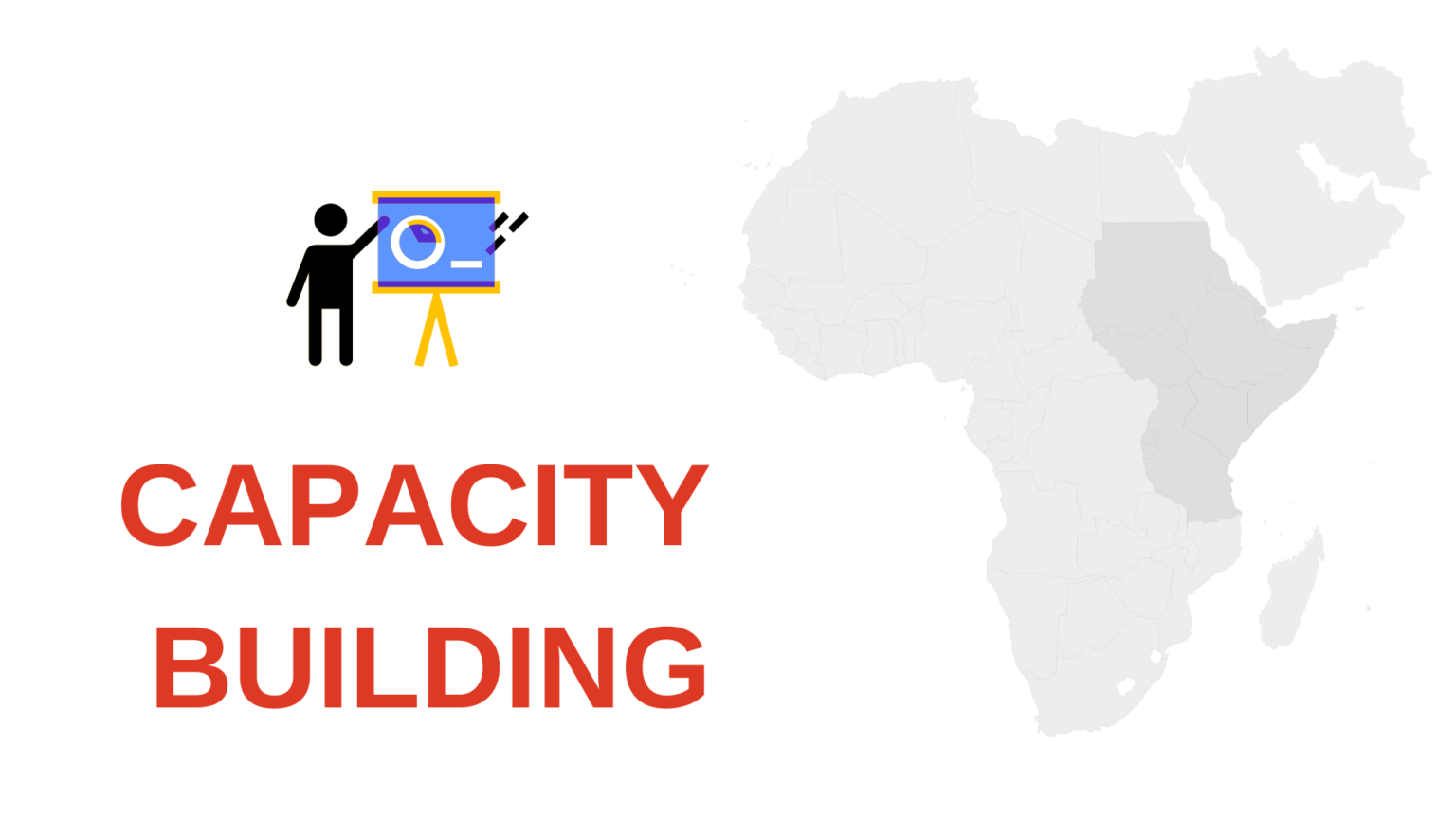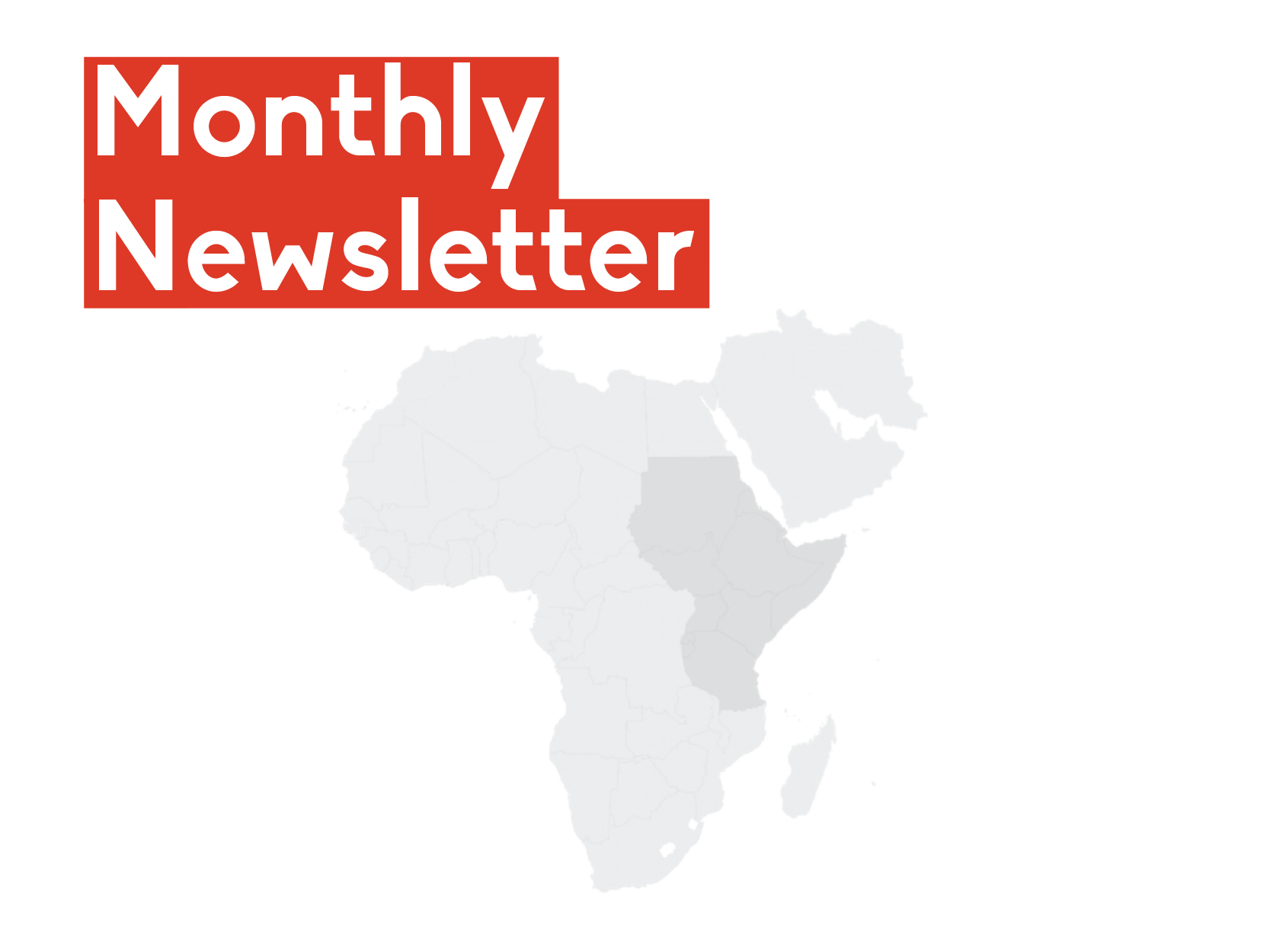Dear Colleagues,
The last 31 days of 2023 were very active ones for us at DefendDefenders. We were able to launch our signature research for 2023 – Looking Back; The Impact of the Universal Declaration on Human Rights(UDHR) and the UN Declaration on Human Rights Defenders (HRDs) at a colorful gala commemorating 75 years of the UDHR and 25 years of the UN Declaration on HRDs. Hosted on the eve of International Human Rights Defenders Day on 8 December at the Kampala Sheraton Gardens, the gala was attended by nearly all ambassadors, heads of UN bodies, HRDs, civil society leaders, and was presided over by Uganda’s Minister for Justice and Constitutional Affairs, Norbert Mao. As a takeaway, Mr. Mao committed that his ministry would publish a National Action Plan on Human Rights by March 2024, and invite HRDs and human rights stakeholders to further discuss the Human Rights Defenders Bill currently before the Ugandan Parliament.
A few Days later, I attended(virtually) and addressed the opening session of the 2023 Human Rights Defenders Summit hosted by the Rede Moçambicana dos Defensores de Direitos Humanos (RMDDH), Mozambique’s human rights defenders coalition, in which I paid tribute to the contribution of Mozambique’s and indeed southern Africa’s valiant HRDs to the expansion of civic space in the region.
The Summit by the Mozambican HRDs came on the heels of another important convention in Southern Africa – the inaugural cconvention of African Women Human Rights Defenders (WHRDs) convened by South Africa’s African Initiative for WHRDs, which centered discussions on the plight of WHRDs on the continent. Memory Mandera, our Director of Programs and Administration addressed the convention, and highlighted the importance of investing in WHRDs as critical agents in advancing rights for all & ending discrimination against women and girls.
Our work has always been devoted to supporting such HRD-led efforts to continue to expand the frontiers of rights and civic space across Africa as envisaged by the UN Declaration on HRDs, and on Human Rights Defenders Day, we spoke more about our work and the scope and reach of our efforts on a program on NTV Uganda.
For our protection efforts, between 1–31 December, we received a total of 62 requests for support from HRDs at risk. Out of the total requests received; 24 were approved, 21 were rejected, three were referred to partner organisations, while 14 requests are still pending verification. We continued to offer such emergency support to HRDs at risk even throughout the festive season via our protection hotlines.
Overall, we had a dynamic year and continued to push back against threats to HRDs especially in light of persistent conflicts on the continent that continue to endanger their safety and wellbeing. You can read more on the scope and impact of our efforts and interventions in my End of Year Message.
Hassan Shire,
Executive Director, DefendDefenders
Chairperson, AfricanDefenders
Human Rights Defender of the Month:Joseph Oleshangay

As a human rights lawyer and advocate with the High Court of the United Republic of Tanzania, Joseph Moses Oleshangay spends most of his time crossing from one court to another, litigating human rights cases, some with life-altering implications for ordinary people. It is a monumental responsibility, one he never envisaged growing up.
As a young boy born into a Maasai household in northern Tanzania, his entire childhood revolved around cattle: “Our entire livelihood revolved around cattle. As a child, the main preoccupation was to tend to cows, and my formative years were spent grazing cattle around Endulen. It a simple lifestyle,” he says.
Updates from DefendDefenders

From 4 – 6 December, DefendDefenders offered wellbeing training to members of Sudan Defenders Coalition, benefitting a total of 11 members, (5 female and 6 male).
On 12 December, DefendDefenders handed over security equipment to Hope for Peaceful Families Foundation based in Mbarara, western Uganda, to enhance their organisational physical and digital security.

On 11-12 December 2023, DefendDefenders participated in celebrations to mark the 75th anniversary of the Universal Declaration of Human Rights (UDHR75) in Geneva, during which our Executive Director was invited by the High Commissioner to speak on one of the official panels.
After the adoption of a ground-breaking resolution on Sudan in October 2023, the President of the UN Human Rights Council appointed the three members of the new Fact-Finding Mission (FFM) in the country. They are Mohamed Chande Othman (Chair), Joy Ezeilo, and Mona Rishmawi. We encourage all Sudanese HRDs and organisations to share information on violations with the FFM.
On 18-19 December 2023, we wrapped up the year by attending an expert consultation on law enforcement facilitation of peaceful protests, organised by the UN Special Rapporteur on Freedom of Peaceful Assembly and of Association, Clément Voule, in cooperation with OHCHR and UNODC.
On 11 December 2023, DefendDefenders and AfricanDefenders partnered with META to launch two initiatives designed to protect human rights defenders (HRDs), particularly online activists across the region. Under the partnership, DefendDefenders and META established an Africa HRD Fund for online activists and an online Digital Security for Activists free-to-access training program focusing on security basics, Community Standards, and available support resources. Both will see online activists and HRDs, often underserved by protection initiatives get attended to by strengthening their capacity and resilience.
On 8th December, DefendDefenders published a report on the impact of the UDHR and the UN Declaration on human rights defenders on the work of African human rights defenders, which was presented at an event we organised to mark Human Rights Defenders Day. The event, which also recognised the 75th anniversary of the Universal Declaration on human rights defenders (UDHR) was attended by members of Uganda’s diplomatic co, HRDs, civil society actors, among others.
On International Human Rights Defenders Day, we partnered with NTV-Uganda to broadcast a talk show program that shed light on the broad spectrum of our work in the service of HRDs, in the context of the UDHR and the Declaration on HRDs.
Opportunities
Country Updates:
Burundi
Human rights groups expressed alarm over comments by Burundian President Evariste Ndayishimiye, in which he implied that homosexuals in Burundi deserve stoning. In a question-and-answer session with journalists on 29 December 2023, President Ndayishimiye stated that “I even think that these people, if we find them in Burundi, it is better to lead them to a stadium and stone them and that cannot be a sin,” comments that rights groups argue will further endanger sexual minorities in a country where they’re already socially ostracised and face up to two years in jail once convicted of same-sex offences.
In a new report, a Burundian rights group – Burundi Human Rights Initiative called for the investigation and withdrawal of Burundian troops deployed in Eastern DR Congo, noting that the troops have been involved in a number of rights violations including rape and abduction of civilians. The Burundian forces were initially deployed as part of the East African Standby Force to stabilise the restive Eastern region of Congo which has for long been besieged by several rebel activities and armed groups.
Ethiopia
On 28 December, in a joint report, the Office of the United Nations High Commissioner for Human Rights (OHCHR) and the Ethiopian Human Rights Commission jointly highlighted the urgent need to establish transitional justice with structural reforms to put an end to impunity and protect victims. The report documents incidents including attacks leading to death, physical harm to non-combatants, property destruction, and widespread displacement, and makes far-reaching recommendations to guide a transitional justice process.
On Christmas Day, a drone strike in Ethiopia’s Oromia region killed 8 people, less than two weeks after 30-40 other people were killed in Amahara’s Sayint district. The incidents highlight what UN human rights office spokesman Seif Magango called the ‘devastating impact of drone strikes and other violence on the population of the Amhara region,” the result of an ongoing confrontation between Ethiopian federal forces, and the Fano Armed group in the region of Amhara.
Kenya
On December 29, rights groups and community activists filed a lawsuit against US multinational food giant Del Monte over allegations of killings and assaults at its sprawling pineapple plantation near Nairobi. A land dispute initially arose between the native populations of the lands owned by DelMonte, who are claiming their right to occupy these lands, and the multinational company, which is said to have used extreme violence against the local populations, including allegations of beatings, rapes and even murders. Kenyan police has launched an investigation after the bodies of four men were discovered near the plantation. Victims’ families are calling for justice to be done and for the opacity to be lifted.
Somalia
On Sunday 10 December, in a statement to mark Human Rights Day, the United Nations reaffirmed its full support for Somalia in the promotion and realisation of the fundamental human rights enshrined in the UN Universal Declaration of Human Rights, the 75th anniversary of which was celebrated at the same time. According to Somalia’s Special Representative to the UN Secretary General, the country is at a crucial stage in its development towards a more stable and peaceful society.
At the end of December, the Somali cabinet approved two draft laws representing significant progress towards the restoration of rule of law and protection of human rights in the country. The first law deals with sexual violence and aims to create a clear and precise legal framework with clearly defined penalties, while the second imposes new stringent limitations on the use of child labour and prohibits the employment of children under the age of 15, in line with international regulations.
Rwanda
Human Rights Watch decried the United Kingdom’s attempt to circumvent international law in its proposed amendment to its Rwanda asylum seekers deal, which was declared illegal by UK’s supreme court. The latest amendment to the Bill would have UK courts disregard certain aspects of international refugee law that are inconvenient to the implementation of the asylum deal and compels UK decision makers to automatically assume and treat Rwanda as “a safe country” without question, in a determined effort to see UK relocate asylum seekers to Rwanda as first mooted by Conservative Prime Minister Boris Johnson. In November, the UK Supreme Court had ruled that Rwanda is not a safe third country for refugees, owing to a history of human rights violations.
The latest mid-term report by the United Nations Group of Experts on the Democratic Republic of Congo (DRC) reveals overwhelming evidence of the direct involvement of the Rwandan army (RDF) in the conflict in the DRC, initiated by the terrorist organisation M23. The mid-term report corroborates earlier allegations of support for the M23 armed group (allegations corroborated by a UN report), stating that “the Group of Experts has gathered additional evidence of direct interventions and troop reinforcements by the Rwanda Defence Forces on DRC territory”. Many nations and representatives of international institutions have called on Rwanda to withdraw its armed forces from the DRC and its support for the M23.
South Sudan
On 15 December, in a statement, Amnesty International highlighted the shortcomings of the justice system in South Sudan over the 10 years since the start of the armed conflict between forces loyal to President Salva Kiir Mayardit and Vice President Dr. Riek Machar. The statement documented violations of international humanitarian law and human rights abuses by each side, including mass killings, rape and other conflict-related sexual violence, abduction, the recruitment of children into armed conflict and the looting of civilian infrastructure, among other violations. The statement concludes that these failings on the part of the justice system have led to a situation of impunity linked to delays and the lack of reliable mechanisms for dealing with past cases, fuelling the climate of violence that reigns in the country.
On 31 December, six people, including a senior local government official, died in an ambush by armed men in the Abyei region, which is claimed by both Sudan and South Sudan, local officials said. This attack is the latest in a region where ethnic clashes killed dozens in November. The oil-rich region is plagued by frequent violence, with rival Dinka ethnic groups – the Twic Dinka from neighbouring Warrap State and the Ngok Dinka from Abyei – locked in a dispute over where to draw an administrative boundary.
Sudan
Sudan’s human rights situation continues to deteriorate. On 27 December 2023, the Rapid Support Forces (RSF) attacked Madina Arab village of Janub Al Jazirah locality, Aj Jazirah, in Sudan, while in North Kordofan State, about 420 people were displaced on 29 December 2023 after inter-communal clashes erupted. Civilians continue to suffer the violence and are the main victims, forcing local populations to flee and take refuge in neighbouring countries or to be displaced within their own country.
Uganda
In December, a number of activists, human rights organisations, lawyers, intellectuals and religious leaders organised to challenge Uganda’s anti-homosexuality law, arguing it was a violent violation of fundamental human rights guaranteed by the Ugandan constitution and international human rights law. The country has come under enormous pressure since the passing of the law in May 2023, with several donor partners including the World Bank suspending funding to the country.
On Wednesday 6 December, Uganda criticised the US decision to impose visa restrictions on some of its officials because of the country’s controversial anti-LGBT+ law and promised not to repeal it. The United States have imposed visa bans on Ugandan officials, accusing them of “undermining the democratic process” in Uganda and violating human rights, particularly those of LGBT+ people. Despite pressure from the international community, civil society organisations and HRDs, the government refuses to withdraw its law.

